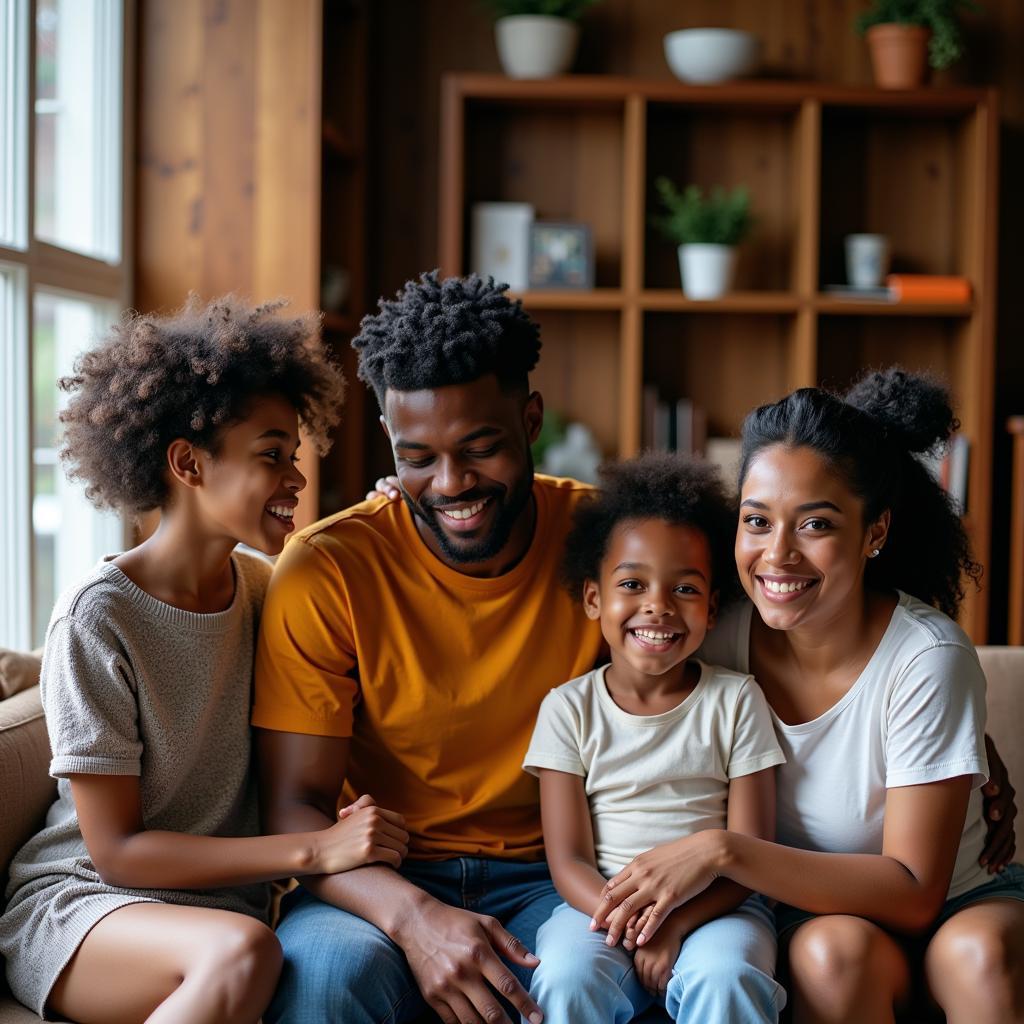Understanding African Girls’ Journey to Marriage
African girls’ journey to marriage is a complex and multifaceted topic, varying significantly across the continent’s diverse cultures and traditions. It’s a journey deeply rooted in societal norms, family expectations, and individual aspirations. Understanding this journey requires moving beyond generalizations and delving into the specificities of each community.
The Role of Family and Community in an African Girl’s Path to Marriage
Family and community play a pivotal role in shaping an African girl’s path to marriage. In many African societies, marriage is not solely seen as a union between two individuals but rather as a bond between two families and communities. This interconnectedness influences the decision-making process, with family elders often playing a significant role. The considerations extend beyond love and compatibility, encompassing factors such as social standing, economic stability, and family lineage.
Traditionally, families have played a crucial role in choosing suitable partners for their daughters, prioritizing alliances that strengthened community ties and ensured social security. While this practice is evolving, familial influence remains significant in many regions. The weight of family expectations can be substantial, and navigating these expectations is a significant aspect of an African girl’s journey towards marriage.
Bridal Wealth and its Significance in African Marriage Customs
Bridal wealth, often mistakenly referred to as “bride price,” is a crucial element in many African marriage customs. It is a symbolic exchange of gifts, often livestock or other valuables, from the groom’s family to the bride’s. This practice should not be interpreted as purchasing a bride but rather as a gesture of respect and appreciation for the bride’s family and their role in raising her. It also serves as a form of compensation for the loss of the bride’s contributions to her family. The specifics of bridal wealth vary widely across different cultures, reflecting the diverse traditions and economic structures across the continent.
Modern Influences and Changing Perceptions of Marriage
Modernization and globalization are influencing perceptions of marriage across Africa. Increased access to education and economic opportunities for girls is empowering them to make more informed decisions about their future. The role of women in society is evolving, and this shift is impacting traditional marriage practices. While family and community remain influential, individual choices and aspirations are gaining prominence.
The age at which African girls marry is also changing in some regions. With greater emphasis on education and career development, some girls are choosing to delay marriage to pursue their personal goals. This trend reflects a growing recognition of the importance of individual autonomy and self-fulfillment.
How are education and economic opportunities affecting African girls’ choices regarding marriage?
Education and increased economic independence are empowering African girls to delay marriage and pursue their individual aspirations. This shift allows them more control over their lives and futures.
What role does globalization play in shaping modern African marriage customs?
Globalization exposes African communities to different perspectives on marriage, contributing to evolving expectations and greater emphasis on individual choice in marital decisions.
Challenges and Opportunities in the Evolution of African Marriage Customs
While African marriage customs are evolving, challenges persist. Child marriage remains a concern in some regions, hindering girls’ education and development. Efforts to eradicate this practice are crucial to ensuring that all girls have the opportunity to reach their full potential.
However, the evolving landscape of African marriage also presents opportunities. Greater dialogue and understanding can lead to more equitable and fulfilling partnerships. By embracing the positive aspects of tradition while adapting to modern realities, African societies can create a future where marriage is a celebration of love, mutual respect, and shared aspirations.
Conclusion
Understanding the journey of African girls to marriage requires acknowledging the rich tapestry of cultures and traditions across the continent. It’s a journey that is constantly evolving, shaped by both tradition and modernity. By recognizing the complexities and nuances of this journey, we can appreciate the diversity and richness of African Life and promote a future where marriage empowers both men and women. Further exploration of specific cultural practices and regional variations can provide a deeper understanding of this important aspect of African society.
FAQ
- What is the average age of marriage for African girls? The average age varies significantly across different regions and cultures in Africa.
- Is bridal wealth still practiced in modern Africa? Yes, bridal wealth is still practiced in many African cultures, although its form and significance are evolving.
- What are some of the challenges faced by African girls regarding marriage? Challenges can include child marriage, pressure to conform to traditional roles, and limited access to education and economic opportunities.
- How are African governments addressing the issue of child marriage? Many African governments are implementing policies and programs aimed at eradicating child marriage and promoting girls’ education.
- What are some of the positive aspects of traditional African marriage customs? Positive aspects can include strong family ties, community support, and a sense of belonging.
Common Situations and Questions
-
Situation: A young African woman is torn between pursuing higher education and getting married.
-
Question: How can she balance her personal aspirations with family expectations?
-
Situation: A young African man is preparing to marry and is unsure about the customs surrounding bridal wealth.
-
Question: What are the appropriate steps to take and how can he navigate this process respectfully?
Further Exploration
Explore more articles on our website about specific African wedding traditions, cultural variations in marriage customs, and the evolving role of women in African societies.
Need Support?
Contact us for personalized assistance: Phone: +255768904061, Email: kaka.mag@gmail.com or visit us at Mbarali DC Mawindi, Kangaga, Tanzania. Our team is available 24/7 to address your inquiries.

